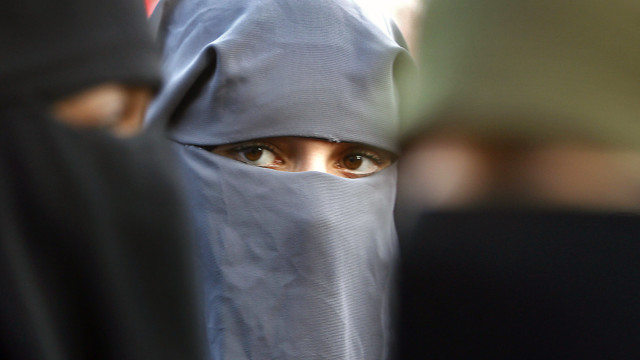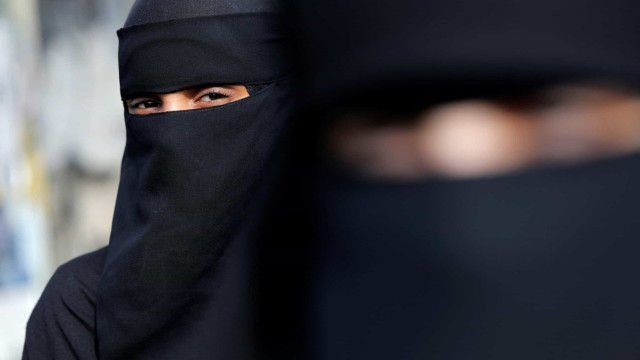The Portuguese Parliament approved on Friday a ban on face-covering garments in public spaces, including the burqa and niqab, or other religious garments serving the same purpose.
“The use of clothes intended to conceal or impede the display of the face is prohibited in public spaces,” reads the proposal presented by Chega and approved with votes from the Right.
The party leader stated in Parliament, “Anyone coming to Portugal, from wherever they may be, with whatever customs or religion, must above all adhere to, respect, and uphold the customs and values of this country.”
The initiative received favorable votes from Chega, PSD, IL, and CDS-PP, opposition from PS, Livre, BE, and PCP, and abstentions from PAN and JPP.
What are the differences between various Islamic veils?
Burqa
The most well-known and controversial is the burqa. It is a garment that covers a woman from head to toe, with the eyes obscured by a mesh screen.

Niqab
Next is the niqab. Similar to the burqa, it fully covers a woman’s body, leaving only the eyes visible.

Hijab
The hijab is excluded from the prohibition. Widely used and visible in Portugal, it covers a woman’s hair, ears, and neck, leaving the face exposed. Unlike the typically dark garments above, the hijab can feature various colors and patterns.

Chador
Similarly, the chador remains permitted. Resembling a veil or cloak, it covers the whole body, except the face, in a flowing manner.

Abaya
Finally, the abaya appears as a long, flowing dress or cloak. It covers the entire body except for the head, hands, and feet, starting at the shoulders and reaching almost to the floor, usually worn with the hijab.

The approved proposal in Parliament includes a fine ranging from 200 to 4,000 euros for women wearing a burqa or niqab in public spaces.
“Public spaces are considered to be public roads, places open to the public, dedicated to public services, and all locations where services are generally accessible to all citizens,” clarifies the document.
Portugal has joined over 20 countries, mostly European, with similar bans, including France, Spain, Germany, and Italy.

More than 20 countries have prohibited the use of burqas and other face-covering veils in public spaces, citing protection of secular values, combating religious extremism, or public safety reasons.
Lusa | 16:10 – 17/10/2025
During the discussion in the Assembly of the Republic, the proposal faced extensive criticism from left-wing parties.
Socialists argued for caution in drafting laws, noting the extreme right’s attempt to “direct hatred” against a “specific target,” namely the Muslim community. PCP and BE opposed the proposal, while Livre accused Chega of submitting a deliberately “flawed project” and therefore did not wish to dignify the debate.

The Assembly of the Republic (AR) approved this Friday the prohibition of the burqa in public spaces in Portugal. The proposal was submitted by Chega and supported by PSD, IL, and CDS.
Natacha Nunes Costa with Lusa | 12:45 – 17/10/2025




